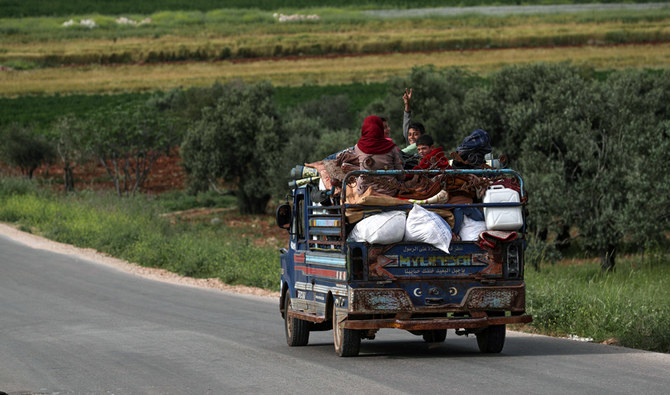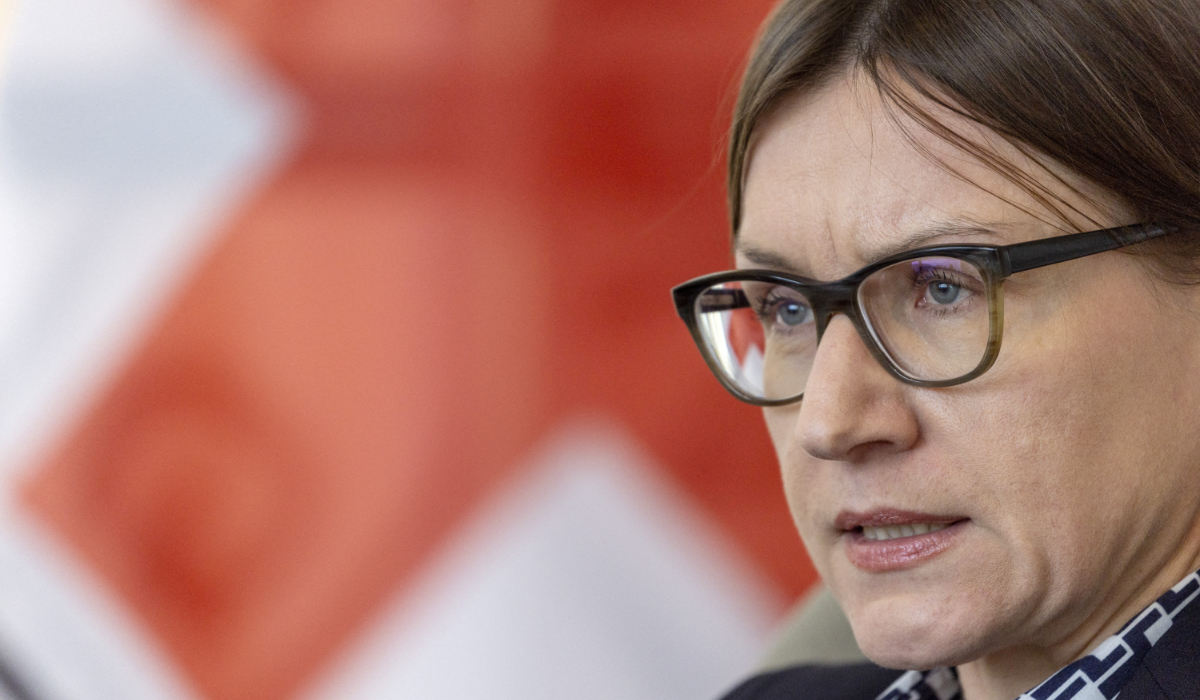HBEIT: Shelling of areas in northwestern Syria in the past three days has damaged a medical center and put two hospitals out of service, the United Nations said on Tuesday.
“The UN is deeply disturbed by three separate reported attacks on hospitals and health facilities in northwestern Syria, depriving thousands of people of their basic right of health,” said David Swanson of the UN Office for the Coordination of Humanitarian Affairs.
“Such violence is completely unacceptable,” he told AFP.
The UN did not specify who was behind the attacks but the Britain-based Syrian Observatory for Human Rights blamed the Syrian regime and its ally Russia.
On Tuesday, a medical center in the town of Hbeit in the south of opposition-held Idlib province was “severely damaged” in artillery shelling, Swanson said.
Regime shelling blew a crater into the walls of the center, said an AFP correspondent who visited the facility. Its interior was littered with rubble, he said.
Earlier on Monday, an airstrike hit a hospital in the town of Latamna in neighboring Hama province, putting it out of service, Swanson said.
The hospital used to carry out 1,300 outpatient consultations and more than 300 operations a month before it was attacked, he said. A third facility — The Madiq Castle hospital in Hama — was also put out of service when it was hit by an air strike two days ago, causing heavy damage to its outpatient clinic, pharmacy and laboratory, Swanson said.
The hospital had served about 8,000 people a month, he added.
“All three incidents further limit civilians’ access to basic health care in northwest Syria,” he said.
“The UN continues to call on all the parties to the conflict to end the destruction of hospitals and other civilian infrastructure that is essential for the civilian population.”
Russia and Turkey in September inked a buffer zone deal to prevent a massive regime offensive on the Idlib region, near the Turkish border. But the region of some 3 million people has come under increasing bombardment since former Al-Qaeda affiliate Hayat Tahrir Al-Sham took full control of it in January.
The escalation has killed more than 200 civilians since February, the UN said last week.
The Observatory said two civilians were killed in Tuesday’s shelling on Idlib and neighboring Hama.


























